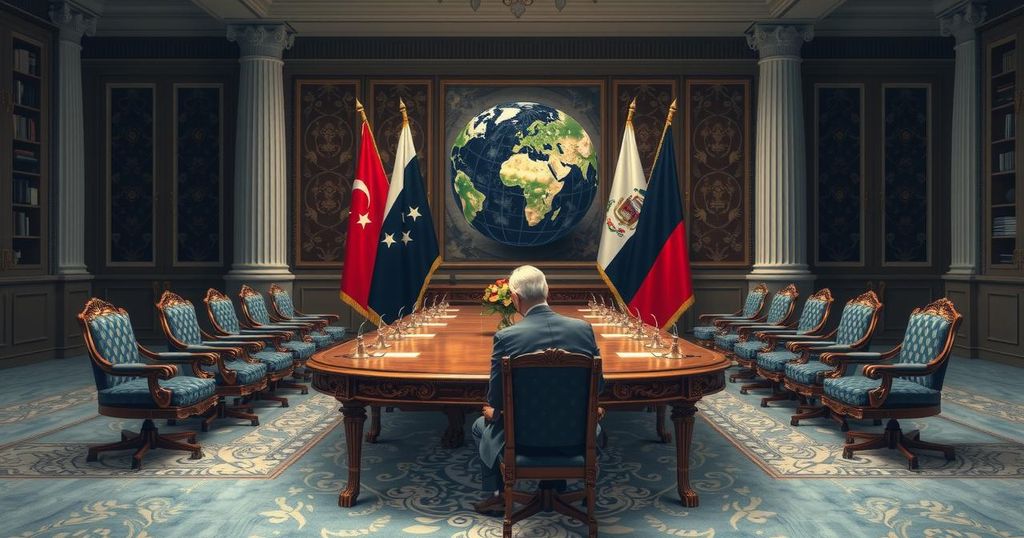German Federal President Frank-Walter Steinmeier has embarked on a three-day tour to Saudi Arabia, Jordan, and Turkey, focusing on the security situation in Syria, humanitarian assistance for Gaza, and regional geopolitics. The trip marks a historic visit as Steinmeier is the first German head of state to officially visit Saudi Arabia. He is set to meet with key leaders to discuss Germany’s interests and address skepticism regarding its role in the region.
German Federal President Frank-Walter Steinmeier commenced a significant three-day Middle Eastern tour, engaging with leaders from Saudi Arabia, Jordan, and Turkey. This diplomatic mission aims to address the evolving security landscape in Syria following the ousting of Bashar Assad by Islamist factions, alongside humanitarian concerns regarding Gaza. Furthermore, discussions will revolve around the implications of Iran’s diminished influence and the ramifications of U.S. foreign policies under President Donald Trump.
Upon his arrival in Riyadh, Saudi Arabia, Steinmeier was welcomed as the first German head of state to receive an official visit honor. He is set to meet with Crown Prince Mohammed bin Salman and participate in discussions with various Saudi think tanks, along with a visit to an arts center to foster cultural relations.
Steinmeier will travel to Jordan on Tuesday to meet with King Abdullah II and visit German troops stationed at al-Azraq airbase, who are part of the international effort against Islamic State militants. Jordan’s geographic positioning and its role as a host to many displaced Syrians are critical topics for the discussions on regional stability and humanitarian efforts.
The tour will conclude in Turkey, where Steinmeier will engage President Recep Tayyip Erdogan in discussions aimed at stabilizing post-conflict Syria. While the German President seeks to clarify Germany’s interests, he may confront skepticism given the complex relationships between Germany, Israel, and the Arab states, exacerbated by Germany’s support for Israel during ongoing tensions in Gaza.
Historically, Germany has endorsed Palestinian statehood and provided considerable humanitarian aid to the region. However, unwavering support for Israel during recent escalations, marked by the October 2023 Hamas attacks, has caused friction and raised concerns among Arabic allies about Germany’s role as a neutral mediator in the Middle East.
The visit of German Federal President Frank-Walter Steinmeier to the Middle East holds substantial importance in the context of contemporary geopolitical developments. Steinmeier’s meetings with leaders in Saudi Arabia, Jordan, and Turkey aim to assess the changing security dynamics in the region, particularly concerning Syria and Gaza. The diplomatic missions also address the broader implications of evolving international relations and regional stability, especially following significant shifts under U.S. leadership and the ongoing humanitarian crises affecting millions.
In summary, President Steinmeier’s visit underscores Germany’s commitment to addressing pressing regional issues through direct dialogue with key Middle Eastern leaders. The trip aims to clarify Germany’s strategic interests and involvement amidst skepticism regarding its role in the Israeli-Palestinian conflict. The outcomes of these discussions will be pivotal in shaping future relations and collaborations within the region, particularly in light of ongoing humanitarian crises and security challenges.
Original Source: www.dw.com




